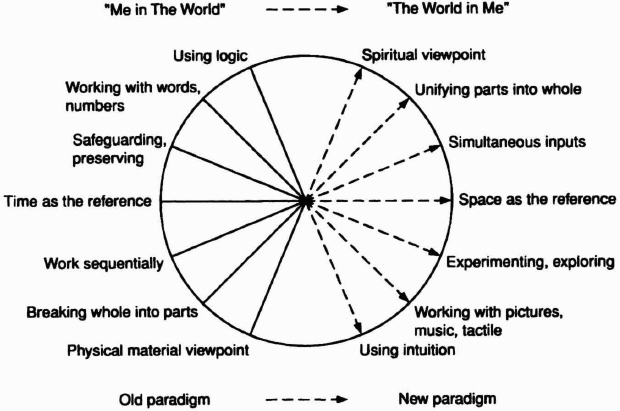Managing Paradoxically: Transcending Conflicts
Doing business in the emerging paradigm, then, implies a basic shift in perceptions, purpose, and profiles of the organization and the managers from those in the old paradigm. Some of the contrasting characteristics of a business organization and individual managers, under the old and the new paradigms, are shown in figure 19.6 and table 19.1.
To initiate and achieve such a shift, individual managers need to cultivate almost contradictory or apparently paradoxical qualities, such as:
- converging divergence
- constructive discontent
- flexible persistence

Figure 19.6 Doing business in the new paradigm
- confident humility
- relaxed attention
- “mindless” perception
How can you bring about such a radical qualitative shift into a corporate culture? How can you cultivate such apparently paradoxical qualities in a manager? This is where the relevance and significance of the concepts of the self – our real identity – becomes clearer. As already discussed, you have the potential to experience different levels of consciousness, and therefore self-identities. With the practice of meditation and centering, you can remain “in touch” with your “deeper or observing self” – the self that is your “constant” secure pivot – and function through your ego, or operating or changing self. Isn't it interesting that we are described as “indivi-duals!” This also resolves ...
Get Beyond Leadership: Balancing Economics, Ethics and Ecology, Revised Edition now with the O’Reilly learning platform.
O’Reilly members experience books, live events, courses curated by job role, and more from O’Reilly and nearly 200 top publishers.

